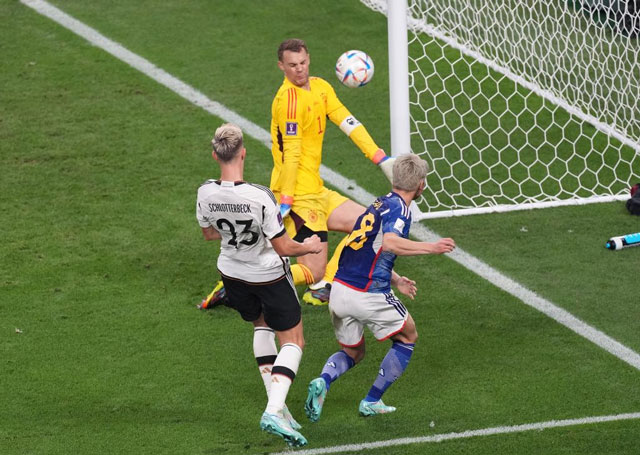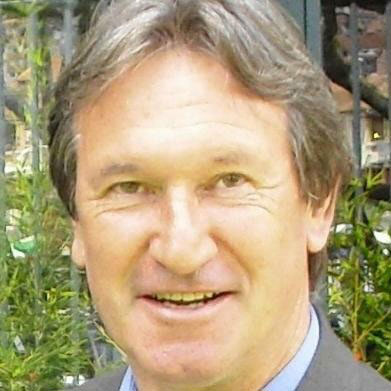
In the last few years we have wanted to play like Spain and solve all problems on the pitch “playfully“. But we are not Spaniards, we are Germans and should focus on our qualities!
COMMENT | Günter Zittel | Karlsruhe, Germany | Nearly every one is smarter after the game, but that is not the reason I am writing. I am writing because of the so many glaring facts, that were there for everyone to see, before the World Cup even started.
I differ from millions of Germans, who believed that their nationial team had what it takes to become World Cup champions. I however admit, that like all Germans, I at least I thought we can get through the group stage.
The coach, Hansi Flick was one of my favourites after Jogi Löw (had to) resign(ed). He showed many years before becoming Head coach of the DFB Team, that he had the potential to do the job very well.
I was therefore very surprised by some of the decissions he made, which in my view impacted on the performance of the team. Here I outline 12 reasons why Germany were set to fail even before the first ball was kicked in Qatar.
1. Flick selected more offensive players than defensive ones, although we all knew about the defensive weakness of this team. One example, which is, I guess, exclusively my opinion (I have never heard or read in the public) is the case of Maximilian Arnold, the 28 year old central midfielder (Number 6) of VfL Wolfsburg. In case Josua Kimmich got injured during the tournament, who would have substituted him? Gündogan? Goretzka? Anyone else? NO! There was no backup for the Number 6 position.
2. Flick decided to field Nico Schlotterbeck in central defence in the opening match against Japan, in which he (Schlotterbeck) made a simple mistake, leading to a goal for Japan. Ok, each and every defensive player can make a mistake, no question but Schlotterbeck has shown in many matches before at Borussia Dortmund as well as in the national team, that he gifts at least one goal to the opponents. He is young, is talented and the future belongs to him but he is not yet a player for the top level. He needs time.
3. Why was Hansi Flick fielding Niklas Süle on the right outside defensive position in the first very important match against Japan? In all matches before at Bayern Munich, Borussia Dortmund and in the national team he was playing on the inside defence position. That is to say, he is a central defence player! I have no explanation! It was no surprise that he didn’t look comfortable in the inside defence, when Morata went past him to score for Spain in the second match. I think he was just part of the team, because we do not have better ones right now, which is of course not Hansi Flick’s fault.
4. It is only a coach who is thinking of retiring or who has given up, who can bring on Schlotterbeck in the 87th minute in a match against Spain. What did Schlotterbeck do again? A mistake, leading Spain to a 2-1 win?
5. I also just had a strange thought! Is there pressure on Flick from the FA? In the squad of the national team are five Borussia Dortmund players: 3 offensive young talents (Karim Adeyemi, 20; Julian Brandt, 26 [future talent]; Youssoufa Moukoko, 18 ), one defensive talent (Nico Schlotterbeck, 23) and one, who is not on top level (Niklas Süle, 27). By some coincidence, the president of Borussia Dortmund is Hans-Joachim Watzke, also vice president of the German FA!!
6. In the last 16 months the coach did not find a team, which has consistency in its structure or frame. There were too many changes in almost all positions. The only constants were Neuer, Rüdiger, Kimmich, Müller and Gündogan. Too many players came in and out, in and out. I noticed that in the 67th minute of the match against Japan he substituded Gündogan and Müller (two leaders) for Goretzka and Hofmann (no leaders). Japan was becoming stronger and scored in the 75th minute for their 2-1 win… this was just 8 minutes after the changes.
7. Having raised all my issues I had with the coach, let me now focus on our general football problems. We must admit that we do not have a world class player in almost every position on the field. The players we have are top at the Bundesliga level, but not on international or world class level. That in a way explains why Hansi Flick – and this is not his fault – had to test so many players on so many positions.
8. We talk too much about having talented players in Germany. To those mentioned in point 5 from Borussia Dortmund, we can add Sané, Musiala and Havertz. It is however only Musiala who is a bright spot to be fielded from the beginning. Sané to me is like Brandt – a talent for the future. All the no-leaders and talents might be good in friendly matches, but fail in important matches or against strong teams.
9. I think the current social-political state of the country needs to be considered as a factor affecting German football. We might have talent, but few leaders in them. They are pampered, but not mentally resistent. The example I would give is that today Germany is missing about half a million skilled workers. Our youth do not want to do work that gets one dirty. They almost all want to study at the university and to become academicians, earning a lot of money (they think), work little, prefer not to work before 9 o’clock in the morning and not to become dirty. Bakers have to close their bakeries because no one wants to get up at 2 or 3 o’clock in the night. Restaurants have problems to find cooks or service staff because working time is Saturday and Sunday.
If you are unemployed in Germany you can get almost the same amount of money from the government as when you are working. If you do a few hours of undeclared work on the side, you are fine. There is less incentive to work, youth less humble in general and with an inflated self esteem. Football players are part of this society and can be influenced by this attitude. What we need are people (players), who roll up the sleeves when things aren’t going well. Either we don’t have them any more or they are not prepared for this.
10. Since Mirco Klose, Germany has not managed to produce new center forwards (Number 9), which in my opinion is essential. And the Number 9 we had (Niklas Füllkrug) in Qatar only came to the national team, after Timo Werner (RB Leipzig) was injured.
11. The guiding principle in German football education system is: education in tactics and technics. The willingness to win a game does not matter. To me it should be vice versa. We need well educated (mentally, technical and tactically – in this order) players. The opinion of many experts was that Füllkrug did not get enough chances, because he had no “international experience“. To me the expression “international experience“ is valued too highly. We have many so called “international experienced players“. What did they do in Qatar?
We need psychically strong players, because these players do not need “international experience“. Füllkrug is one of this type: cheeky, healthy self confidence, winning mentality. Two goals and one assist in three World Cup matches is exceptional. Above all he did it in 66 minutes playtime alltogether. In the Bundesliga he scored 10 times up to now.
That is the type of player who can make Germany a great soccer nation. Antonio Rüdiger said after the last match in Qatar: “Something dirty, that’s what we miss. Lots of talent, all well and good. But there’s more to it than just talent“.
12. We seem to have forgeten the German football DNA: Strong defenders, a good mixture of defensive and offensive players and effective strikers with winning mentality, especially a Number 9. Gary Lineker said once: “Football is a simple game. Twenty-two men chase a ball for 90 minutes and at the end, the Germans always win“.
That is now clearly in the past. In the last few years we have wanted to play like Spain and solve all problems on the pitch “playfully“. But we are not Spaniards, we are Germans and should focus on our qualities. That doesn’t mean that we neglect the education of technics and tactics.
*******

Günter Zittel is a German football coach for the Fédération Internationale de Football Association (FIFA) and former national technical director of Football in Uganda (1999-2004). Zittel studied German and sports in Karlsruhe, Berlin and Heidelberg and completed his training as a high school teacher in Stuttgart. As an amateur footballer, he played for ASV Durlach in the early 1970s . He has had the DFB football instructor license since 1986. After coaching a few lower-league clubs, he was Willi Bierofka’ s assistant coach at TSV 1860 Munich in the Bundesliga 1989–90 season. From May to July 2007 he was in Madagascar as the national team advisor.
 The Independent Uganda: You get the Truth we Pay the Price
The Independent Uganda: You get the Truth we Pay the Price





